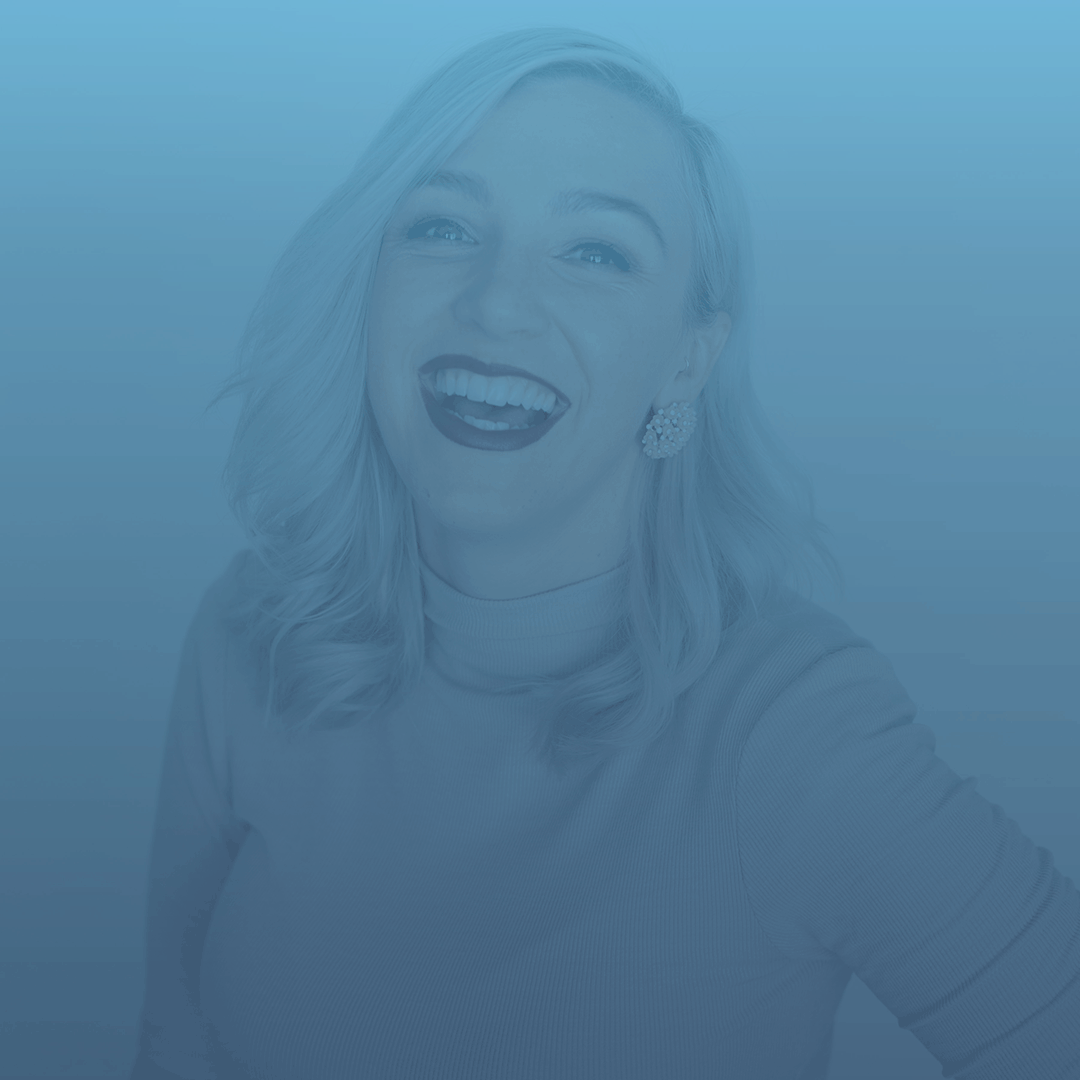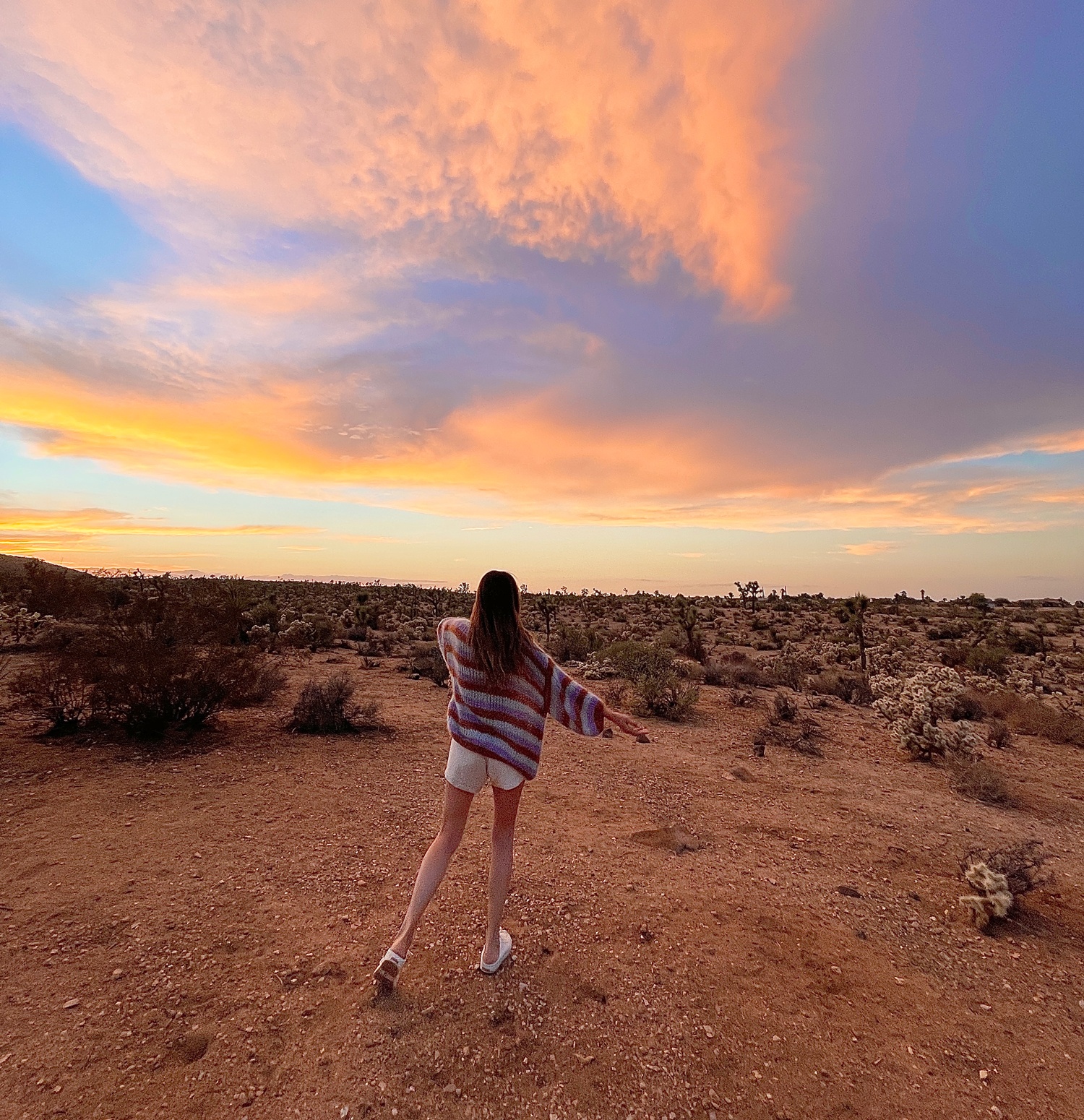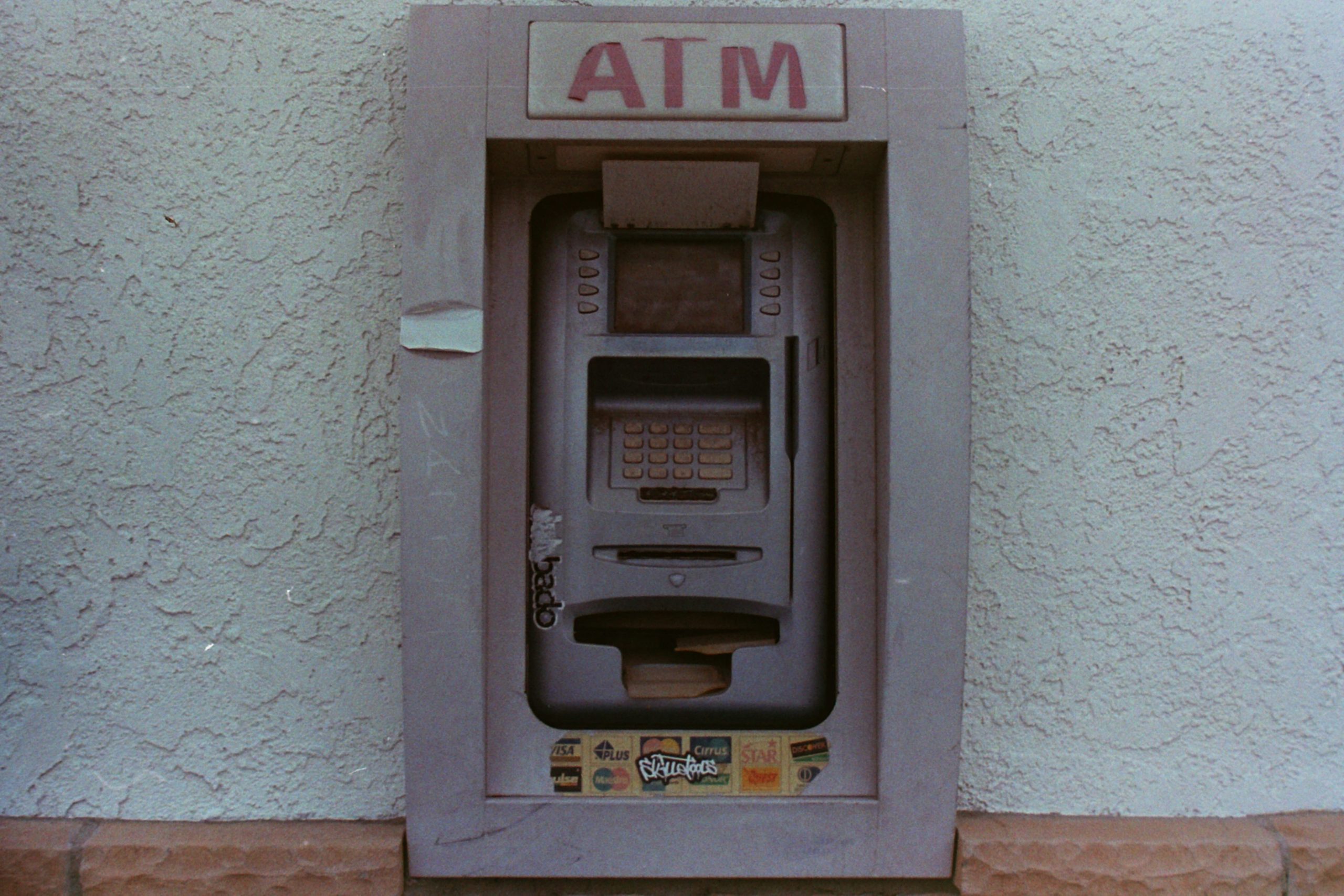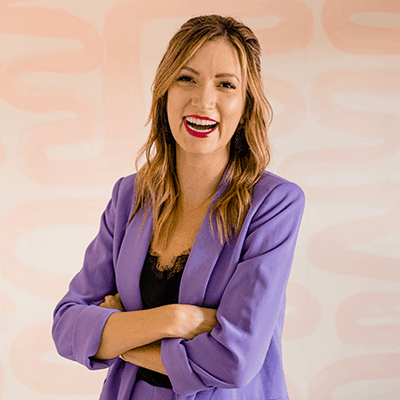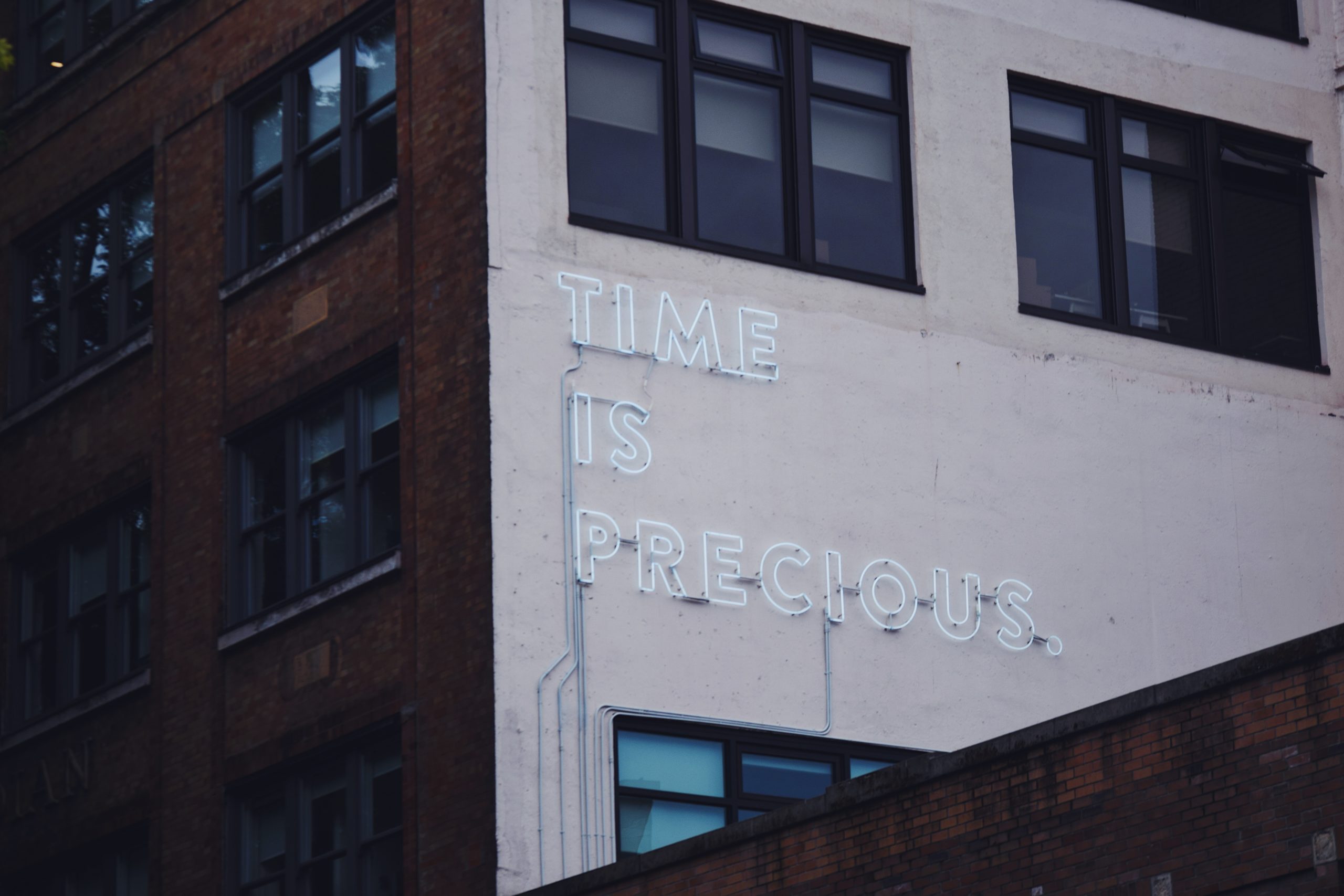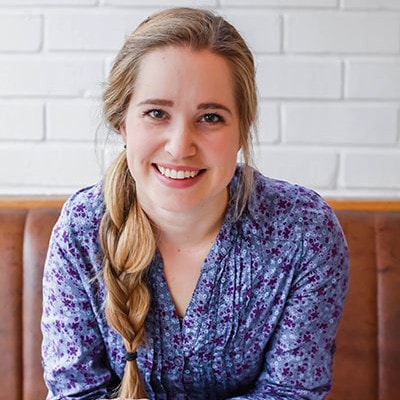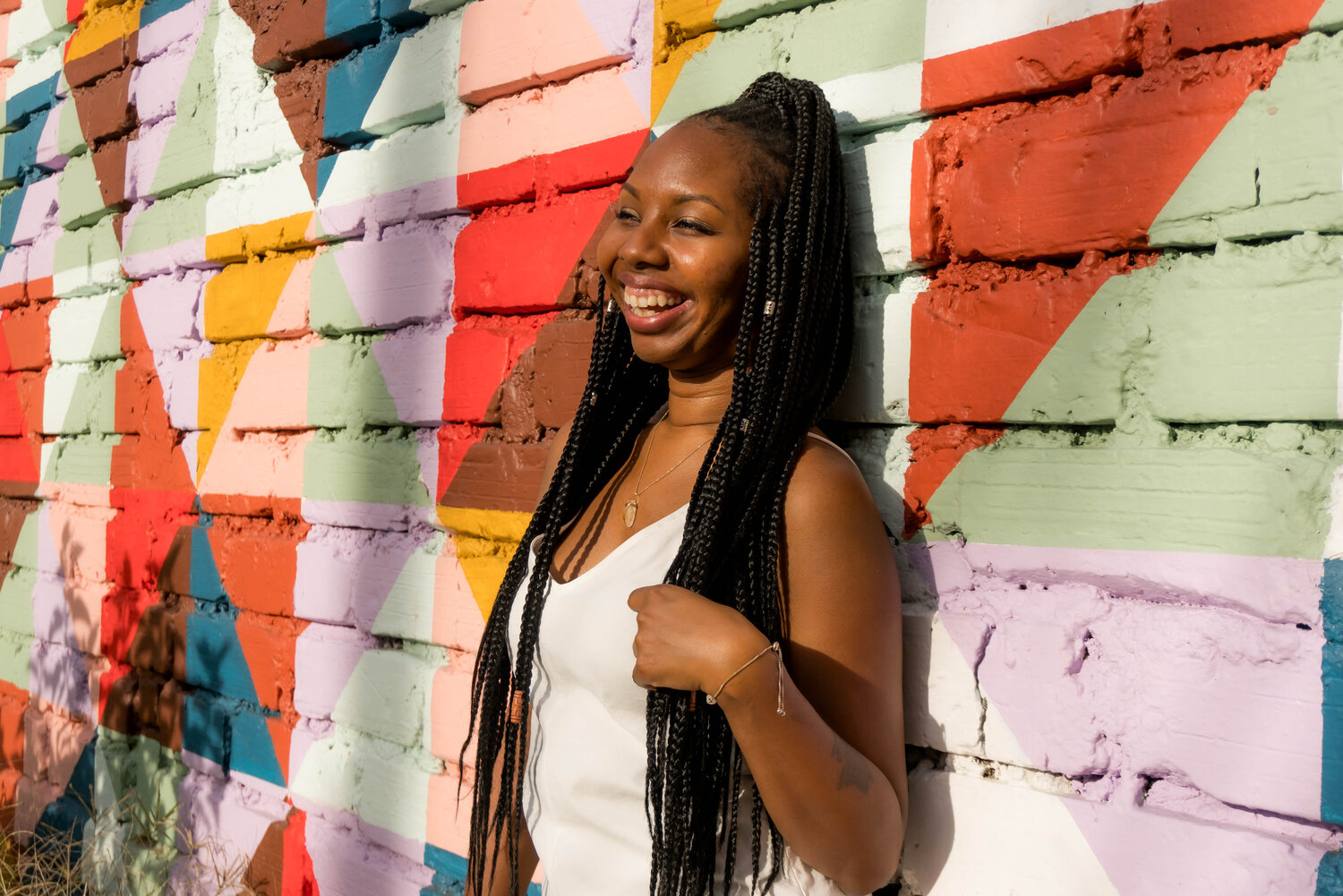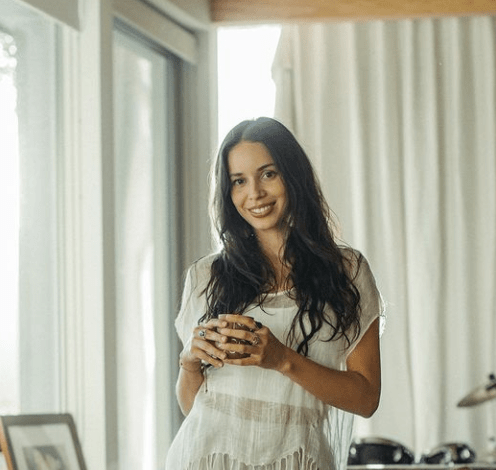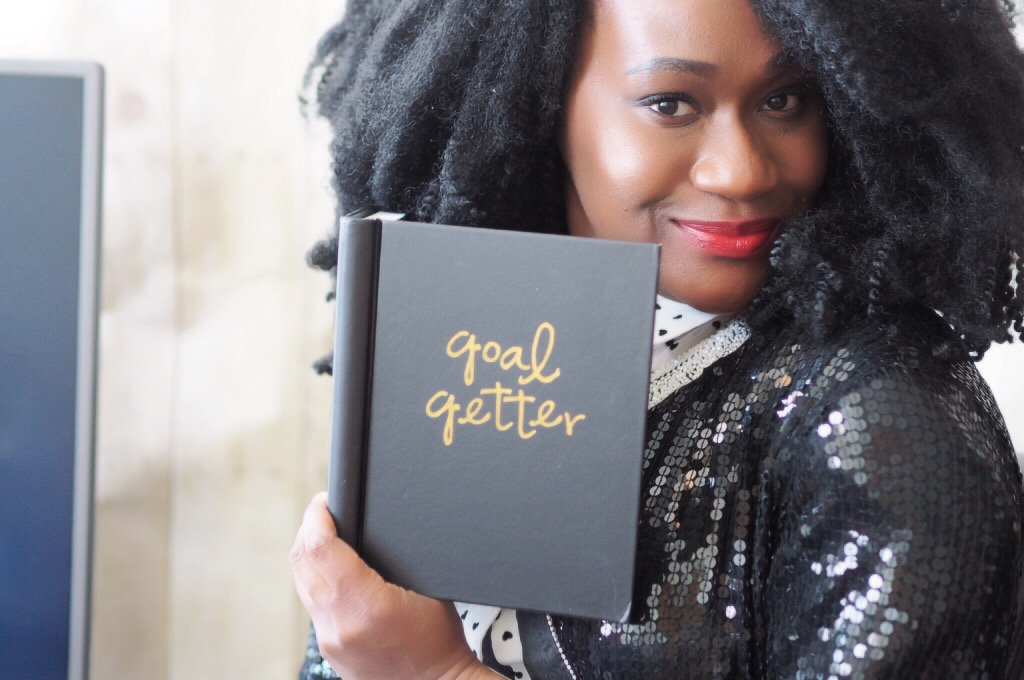“The whole thing about vulnerability is somebody has to trust and be vulnerable first.” -Alison Faulkner.
During today’s interview, Alison (from The Alison Show) shares how she’s used vulnerability and authenticity to grow a huge and engaged audience of people. How do I know her audience is actually “engaged”? Well, when she hosts events, they often sell out in minutes. And when she posts a vulnerable photo on Instagram, they get thousands of likes and tons of comments. This woman has mastered the art of creating genuine connections online, and in this interview she shares how she did it to grow a large, engaged audience — and how you can, too.
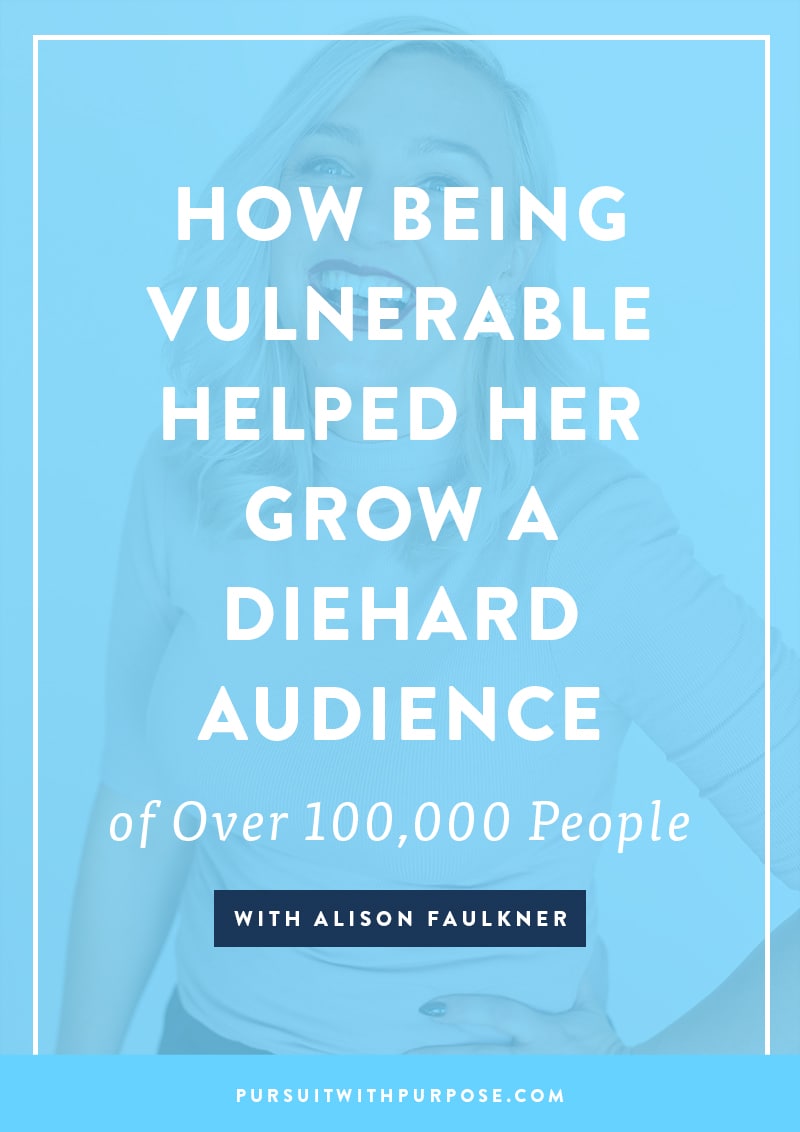
This interview is packed with laughter, honesty, and wisdom and Alison is a self-help cheerleader for the modern ages.
Check out the episode below:
And in case you haven’t heard of Alison, here’s a glimpse of why you should love her (and a hint at something we’ll be talking about during this episode):
In this episode, you’ll hear about things like…
- How Alison formulated a fun, quirky business model and monetized it!
- The mistake she’s made with every business she’s started (and how she’s fixing this in her current one).
- How to create a large, engaged audience (hint: you have to “go first”).
- Why Alison now believes joy and sadness can co-exist with each other at the same time (and how she’s managing a tough personal experience).
- Connecting everything to your “Why” (and the process Alison uses to find hers).
Links from the interview:
- Alison’s Website, The Alison Show
- Alison on Twitter
- Alison on Facebook
- Alison on YouTube
- Alison on Pinterest
- Alison on Instagram
- Quentin Tarantino – Express Your Vision (Video)
Subscribe and Review…pretty please?
Want to be the first to know when new episodes are released? Click here to subscribe in iTunes!
Also, podcast reviews are pretty darn important to iTunes and the more reviews we receive, the more likely we’ll be able to get this podcast and message in front of more people (something about iTunes algorithms?). I’d be extremely grateful if you left a review right here letting me know your favorite part of this episode!
#PursuitWithPurpose
Loving the podcast? I encourage you to use the hashtag #PursuitWithPurpose to show our PWP tribe how you live your purpose everyday. Plus, you’ll get to sift through the hashtag to find other business owners who care about community and connectedness over competition and comparison. And I’ll be reposting some of my favorite images and stories, too. 🙂
Thank you for listening!
Transcript
Read the Interview Transcription HereToday’s guest, Alison Faulkner from the Alison Show, built her brand ten years ago because she wanted to add more love to the world. She’s a branding and events expert with a hugely engaged online community, like I have never seen anything like it before. Something that I love about Alison is how she combines pure fun, like wearing a piñata costume kind of fun, with self-help advice. She is as wise and loving as she is quirky and full of energy. She’s also a doer of all the things, like hosting huge all female dance parties that sell out within minutes, teaching workshops and online courses, and speaking at conferences. She even hosts her own podcast with her husband, Eric, called Awesome with Alison. In this interview, you’ll hear about things like what Alison has learned about life from hosting these huge dance parties of up to 600 people, how to find joy in pain, and what it really looks like to find and follow your purpose, and that for most of us, it’s a zig zag journey rather than a linear path. I hope you enjoy her humor and her silliness, but most of all her heart. Let’s dive in.
Melyssa Griffin: Alison, over the years that I’ve followed you, you’ve done a lot of different creative things like launching a course about making sugar cookies, hosting podcasts sharing about personal development and throwing few female only parties. I feel like your story is an inspiration for me and so many people, because it shows that whatever fun or quirky idea you have, you can make it a successful business. So I’m curious. How do you monetize your business?
Alison Faulkner: Honestly, the only way I’ve been monetizing is through teaching my in person “Build an Awesome Brand” workshops. I had no idea at the beginning of year that that was going to be like my only money, because I was on the fence about doing any more dance parties for the time being. I’ve been really moving away from doing sponsored content, not that I’ll never do it, but it’s just – that’s not where I’m going.
Melyssa Griffin: And real quick, I know you glossed over the dance parties, but these, for anyone listening, there are like hundreds of people who go to these dance parties. They have elaborate themes and details. These are not kids, like birthday parties. These are huge dance parties that you’re throwing.
Alison Faulkner: I built this business model over three or four years. I started it by doing events for other people. My best friend, Susan Petersen, from Freshly Picked, she wanted to have a customer appreciation party, and I said, “Girl, let me do a dance party!” She was like of course, we both love air humping. That’s how I started to formulate the model, and then they grew. My last dance party that I did was last November in 2016 and it was a 600 person party. I had a headlined sponsor. The tickets are $60. Everything is all included, and the tickets sell out in under ten minutes.
Melyssa Griffin: Wow. I’m curious. With these huge dance parties that you’ve thrown, what have they taught you about life?
Alison Faulkner: I teach this principle in my branding workshop, it’s that with social media and life and business, we always want other people to dance first; buy this product from me, do this for me, tell me what you want to see for me on Instagram guys. But the whole thing about the vulnerability is somebody has to trust and be vulnerable first, and as the business owner and as the brand, it has to be you because you want something. So in your relationship with your husband, in your relationship with your friends, you might be like well no they need to trust first, or you try to put it on the other person, but in your business and in your brand, you’ve got to be the monkey dancing first. I danced first because I wanted to, not because I thought anybody would care, and hysterically enough, they care. For people who aren’t familiar with me, I am not like a professional good dancer.
Melyssa Griffin: I mean that’s questionable, but I see what you’re saying.
Alison Faulkner: I am a professional nonsense dancer, so people are like what kind of dance training do you have, and I’m like I watched a lot of “Coyote Ugly”, mostly that.
Melyssa Griffin: And your dancing is, I mean it might be professional nonsense dancing, but it’s like the kind of dancing where you watch and you’re just like I want to do that now. How can I show up and be more of myself online and with the people that I know? I’m curious. Did you always start off that way? Were you always this confident, bubbly, can go anywhere in public? You go to your local recreation center and like dance around the track, and I love it. Were you always like that or was…?
Alison Faulkner: Yeah.
Melyssa Griffin: You were?
Alison Faulkner: You’ve got to know your unique value propositions. I didn’t know that it was a unique value prop. I didn’t know it was unique. When Instagram got video, the thing that made the most sense to me was to listen to Robin Thicke’s, “Blurred Lines”, and like get down. That made the most sense to me. Now I am completely terrified and not confident about things that you wouldn’t think. So for example, I’m changing and expanding the format of my workshop. Today, I put tickets on sale for my next workshop, and that has resulted in a week long bout of crawling skin anxiety. It’s been a big battle to learn how to feel comfortable asking money for what I’m worth, but I will air hump in front of a 100,000 people with no questions asked.
Melyssa Griffin: It’s so interesting how we all have things like that, where it’s like you can be so confident in one realm and then completely scared out of your mind in this other thing that people wouldn’t even suspect. So interesting. Was there ever a time when – because I know you’re such a great self-love evangelist and you help other people with that. Was there a time when you didn’t feel like you fully loved yourself or where you struggled to find accept yourself?
Alison Faulkner: That’s a really interesting way of phrasing it, because I feel like I always love myself in a sense, but I think sometimes maybe I don’t believe in my value or that my value, this is what it is… It’s that my value is attached to what I achieve. So yeah, I love myself when I’m achieving a certain amount of success or a certain amount of feedback, or whether it’s attention. Whatever it is that looks like success in that scenario, yeah I love myself if I’m achieving at that level. But then learning to detach your value from your achievement…
Melyssa Griffin: Yeah, I 100% relate with that. I went through like a major bout of that last year when my business was growing, and I was like okay my values – like I’m better, my value is increasing. I’m more confident now. And then, I started realizing that all of my self-worth was being placed on the success of my business, and it’s like what would happen if that went away, then who would I be deep down or like how would I feel about myself.
Alison Faulkner: Yes. It’s very, very, very difficult with social media. Especially if you’re somebody like me, I love words of affirmation. It makes me feel good, and that’s also how I tell other people they’re doing a good job, a love* language. And so, what happened with stupid* Instagram and blogs, is you get on there and you do something funny and people tell you they love you and you go, “Well, oh my goodness. Thank you so much.” And so, you weren’t seeking it. It didn’t hold value for you before, but it started to feel like – you think of every single day you go – let’s say you’re in high school. Every single day you walk into high school and 30 people tell you how pretty you are. And then you go to high school the next day and you’re this 16-year-old girl, and not one person tells you you’re pretty. Are you no longer pretty? Are they bored with you? Did something happen? And then you make it all about you: I need to fix it, I need to lose weight, I need to do this. That’s what social media is like. You’re growing. You’re getting attention. You’re getting praise. You’re getting feedback. And then people get bored. People find somebody else they like. They want you to dance monkey dance. They want you to jump higher. They want another sale. They want another promotion. Maybe they’re not even thinking about you. Like you said, your whole self-worth can be wrapped up in it and you didn’t do anything wrong, and you weren’t seeking for that to define you. You weren’t seeking for people to love you for your nonsense dancing on Instagram. And then when you don’t get that feedback, where are you then? And so, that kind of “Come to Jesus”, they were going into the revival tent, and then the expectations. It’s all about – I’m just so obsessed with scalability right now, because what happened for me – and I would assume, but you know they say about assuming, but what happened for you is you have certain tools that serve you in your life. And so, I have the way that I interact with 30 people. Those tools, and maybe they’re flawed and maybe they’re this and maybe they’re that, and then all of the sudden, I’m interacting with 30,000 people, 300,000 people. Are those scalable tools? In a lot of ways, my tools were not scalable.
Melyssa Griffin: Yeah, and kind of like coming to terms with that or trying to figure out a new system, is that part of where that shift this year came from?
Alison Faulkner: Yes, definitely, definitely.
Melyssa Griffin: I love that too, just real quick, because I feel like people see people like you, who have a big audience and you’re doing so many amazing things, and they think she’s got it all figured out. She doesn’t need help with anything. And then spoiler alert, it’s like things change when you get to a different level of business, where you have different dreams that you want to pursue. It’s constantly this game of figuring things out and dealing with kind of those belief systems of can I do this, or is this going to be a major shift, and all of that stuff that goes into it.
Alison Faulkner: Yes, and just from what I’ve seen of your story of starting this podcast is, it’s the same type of thing. You’ve reached a certain level in your business and you thought it was going to make you feel a certain way. You achieve it, and then when you don’t feel that certain way, you’re like maybe my tools were wrong all along, or maybe the barometer for success – like I don’t know. It’s just your whole mind explodes.
Melyssa Griffin: Yeah. I love what you said earlier about how you go into this with this not even being the goal. It’s like you don’t go into it wanting all of these things, and then you start getting this praise or you make money. That suddenly becomes the thing that you need, when really it wasn’t even the thing you started off with doing this for. So we get wrapped up.
Alison Faulkner: Yes, and it feels like they stole your identity, because it’s be yourself. We just want you to be yourself, but we want you to be yourself when you’re in this mood for this many seconds, when your hair looks this way because that gets more likes and more engagement. So yes, be yourself, and you’re like I don’t know who I am anymore.
Melyssa Griffin: I feel the shift that you’re on right now and I see you as…
Alison Faulkner: I really appreciate that. Thank you so much.
Melyssa Griffin: Yeah, I totally see that. I feel like you’re this spiritual personal development teacher, wrapped up in a mermaid costume wearing a piñata dress, doing silly, nonsense professional dance videos, but making it fun and being able to talk about things like abundance and meditation and philosophy, and make it very digestible for people. So I’m curious. Do you have a vision for where you see you and your brand going in the future? Where do you want to take it? Because I know you’re on a journey right now.
Alison Faulkner: Yeah, thank you. I definitely do. It’s something that I had to fight for. What’s interesting is I think it’s been the same thing all along, but different successes and different directions in your career will be like oh maybe I’m going to be this now and maybe I’m going to be that now. It’s funny, because I feel like I’ve come full circle back to the start, is that I started my blog because I wanted to put love into the world. It’s so cheesy and it’s so trite, but it’s just absolutely 100% true. I went totally nihilistic at one point in my 20s, because like it’s fun, you’re in your 20s. You’re a nihilist. There’s no meaning and you don’t want to get out of bed. What can combat all the hate and all the fear and just the horrible things we do to each other as humans, and it’s love. And then, piecing back together my identity of there is meaning for me if I’m sharing love. Maybe that’s part of what it is, is disjoining – is that a word? Disconnecting meaning in value. It’s that I have value if I’m creating meaning for other people – no. Your value is inherent. You’re human, so your value is inherent. And then, you get to assign meaning and what meaning is going to be like for you. When we live with meaning, that brings happiness, that brings joy, that brings abundance and the different things. And so, what I see for myself in the future is I want to share as many tools as possible for people to get that. Whether they get that through dancing, whether they get that through meditating, whether they get that from listening to a podcast, whether they get that from coming to a branding workshop and realizing that having an intention driven brand is going to bring them the most meaning in their life, but also the most success because people feel that authencity and they engage with it. So that’s what I want to do.
Melyssa Griffin: Yeah, I love that. I mean I think that’s beautiful. It does. I don’t think it’s cheesy or trite at all. I think you should take that out of your vocabulary because I feel…
Alison Faulkner: I appreciate that. That’s one of the things, is I did an internship with Hallmark cards. I really like chill, understated people. I married one. My best friends are all chill, understated people. I am just flamboyant to my core, like to my core. It’s like we’re always attracted to what we’re not. I was saying this to a client yesterday who I was consulting with, and like our greatest weakness is always our greatest superpower, always. It’s like sometimes I think you’re so cheesy Alison, but I’m also like because I’m so fun. I did jazz hands for those of you who couldn’t see the jazz hand.
Melyssa Griffin: I was just going to say that. The people need to know that you just did some jazz hands.
Alison Faulkner: There were some jazz hands.
Melyssa Griffin: I love that. So that’s amazing. So you’re doing branding workshops right now. I mean I feel like you can be this Lady Gaga meets Oprah, meets like Wayne Dyer.
Alison Faulkner: You are feeding my dream ego right now. Stop or keep going.
Melyssa Griffin: Do you envision doing events or things that help reach people on a mass scale? Because I feel like your message and the way that you convey it, is so fit for reaching tons of people.
Alison Faulkner: Thank you. Yes, I definitely – the big shift for me and the change in the branding workshop that I’m implementing, is making it scalable. Because what I did at first, is I made it so that every single student gets to go just through me, and every student gets to take as much information from me as they possibly can. It’s not sustainable and it’s not scalable. It’s the same mistake I’ve made with every business. Oh dang it, I hate when I have realizations while I’m talking to somebody. You feel so exposed.
Melyssa Griffin: Yeah, I feel like that – I mean it makes sense. I feel like it’s part of your gift though too. You do that because you’re so great at connecting to people in that more personal intimate environment, but I can see how that would make it not very scalable as a business model too.
Alison Faulkner: And also, it’s again that greatest superpower, greatest weakness. Yeah, it is my superpower, so I don’t think anybody else can do it. That’s ego right there. I don’t really think nobody else can do it, but my ego kind of does. And so, I’ve brought in three awesome women who I trust to listen to me and to work with me. They’ve also gone through the content for themselves. I’m training them in it. My husband sent me this gold – do you have a gold cast?
Melyssa Griffin: I don’t. No.
Alison Faulkner: It’s a YouTube channel, and it’s awesome. It’s gold cast. They interview famous people or all types of different people and they share things. It was Quentin Tarantino, and he was talking about how it’s not your job to create your vision. It’s your job to hire talented people to help you create your vision. He felt so overwhelmed writing these movies, and he was nobody, how was he going to make these amazing films? And then when he realized, it’s not up to me to do it all by myself, I need to bring people on. It’s up to you to share your vision, to have the vision, and then to be able to share it and then let other talented people execute. That has been one of the biggest, hardest lessons for me, is trusting other people with my vision, and realizing that not only are they capable, they’re going to make it better. I had to learn the lesson from my dance parties. I used to make all the backdrops. I would secure the sponsor, make all the backdrops, be the host, do every single aspect of the party. And then, again it’s not sustainable. It’s not scalable. For my dance party I did last November, I brought in the most help, I scaled it up, and it was frigging rad. It was awesome!
Melyssa Griffin: It looked amazing.
Alison Faulkner: Thank you. What I had to do is I had to acknowledge that what I did is I made it more about me and it actually became less about me. I was too nervous to get up on stage and dance or welcome everybody to the party. I didn’t want it to be about me, I just wanted it to be a dance party, but then when I realized by fully committing and coming up on stage, and not just like one but two costumes and popping out of a cake and hiring professional dancers to be like back-up dancers. Oh and I didn’t just do that, I had my husband who’s a music producer, write me a pop song that I had him auto-tune, like I’m a drag queen. By going so all in on the absurdity, again it gave permission to people to do the same. In the past, they would have been like oh my gosh, I’m such a narcissist making this about me, where really that’s just fear because you give yourself permission to go all in. You’re just giving permission to everybody else.
Melyssa Griffin: I love that. I love that so much.
Alison Faulkner: It’s funny because it’s like do people think I really just like posting selfies of myself. And then the other lesson is who cares. If they think I like posting selfies of myself, again that’s my ego’s problem. It’s not a real problem. It’s my ego’s problem, because if I’m connecting with people and I’m getting the message out that I want to get out, then I just have to get over it.
Melyssa Griffin: Yeah. Those are two of my favorite things that you’ve said. I think it’s so tactical for people too, who are thinking like I don’t want to get on video, or I don’t want to sell this thing, or I don’t want to post a selfie of me on my social media. Doing those things and being vulnerable and being you is exactly what’s going to create that change for your audience too, and make them feel like they can be themselves, or they can do a video and show themselves to other people. I love that you are fully embracing that and seeing that it’s not narcissistic. It’s actually for the greater good of all of the people in your community.
Alison Faulkner: Thank you. I really appreciate that. The other thing is you’ve got to – okay yes one, feelings and great and permission. And then two, people can’t rip you off. They can rip your cute selfies off. When you inject – from a business, like let’s look at it from a strictly tactical business standpoint. They can’t replicate what is inherently you. So when you inject – and you don’t have to be the face of your brand. You don’t have to be Alison razzle dazzle time, but when you inject characteristic traits that are uniquely inherent to you, into your business, that’s strength. That’s a smart business decision because other people can’t come in and just duplicate that.
Melyssa Griffin: Right. It’s like the more you, you are, the less people can copy you because you’re just so you.
Alison Faulkner: Exactly. You know what, they can copy and they do, and they have and they’re cute when they do it, but they don’t know why they’re doing what they’re doing. That authenticity, you see somebody doing the same thing as somebody else and you’ll be like why is it okay when that person does it, but it’s not okay when this person does it. It doesn’t give me that same feeling. It’s because the person who is doing it that you connect with, is coming from a place of authenticity. They know why they’re doing what they’re doing, and we sense that as humans. When they hop on and they want to steal your exact tag lines and grow your Pinterest and on and on, like people could take your exact stuff and it’s not going to feel as authentic and powerful, because you believe in what you’re saying and you know why you’re saying it.
Melyssa Griffin: People can feel that. Yeah absolutely.
Alison Faulkner: And so, it goes back to, sure post cute pictures of your feet. Nobody cares about your feet and nobody is going to connect with your cute shoes because you didn’t want to show your face. That’s fine and good for you, but your words better be powerful because nobody cares about your feet.
Melyssa Griffin: Yeah exactly. I love the other thing that you said, which is just who cares? One of my friends told me one of her favorite quotes is “don’t take yourself so seriously”. Ever since she said that I was like God that’s so simple, but it’s so obvious. Why do we take ourselves so seriously? Why do we care? What if we just lived life with the “who cares” mentality about all this stuff that comes up and just had fun? That’s what you’re all about too.
Alison Faulkner: Thank you. It’s Mark Manson.
Melyssa Griffin: Oh, he’s going to be on the podcast, soon too actually.
Alison Faulkner: The subtle art guy?
Melyssa Griffin: Yes… yeah great book.
Alison Faulkner: But that’s the premise of his book, it’s not that you don’t care about anything. It’s not just an overall who cares, it’s a caring about the right things. That’s so fun, he’s going to be on your podcast. You’re such a big deal. Good for you.
Melyssa Griffin: Thank you. So I want to talk about – you talked about how last year was one of the most difficult and transformative years of your life. You dealt with unexpected conflicts and some personal issues that came up for you. In one of those experiences, you talked about how joy and sadness can co-exist. You said this quote on your website that I just want to share. It’s “Love is all that matters. Sharing love in the presence of pain is one of the greatest things we can do. I’m not ignoring it. I’m not in denial. Trust me, I feel it all, but I’m alive. I’m feeling it and that’s what life is.” I thought that was beautiful and…
Alison Faulkner: Why am I even crying at my own quote?
Melyssa Griffin: I was crying honestly when I wrote this down earlier. It’s a beautiful quote. It just shows how joy and pain can exist at the same time. I’d love to just hear more of your thoughts on that and how you’ve been able to find those two things simultaneously.
Alison Faulkner: Yeah thank you. So I think that if you’ve listened thus far, you’ll realize that authenticity is a big thing with me. It’s something that I really value. I place a lot of meaning and value in authenticity. And so, at the end of last year, my dad was diagnosed with incurable – he likes to call it incurable cancer, not terminal, incurable cancer because they don’t have a cure for it currently. It became this okay – and I let myself grieve and process it. And then at the other time, it’s like how do I get on Instagram and smile and tell people to love themselves even though I still believe all those things, or how do I dance or show my family at Disneyland having a great time. Is that inauthentic because I haven’t shared these really hard things were going on at the same time? And so, one of the hard, hard lessons that I had to fight for last year is you don’t have to give everybody everything. You don’t have to give everybody everything and you don’t have to let people take everything from you. Letting people take your energy, take your time, take your attention, that does not equal authenticity. You can have boundaries. You can have rules. You can have things to keep you safe and not tell everybody every single piece of the story, and still be a very authentic and transparent individual. And so, that was something that I had to learn. Of course I knew “it”, but did I know it? did I believe it?
Melyssa Griffin: Especially when you felt like your worth was tied to your success. That must have been hard for that reason too.
Alison Faulkner: Definitely. It’s that lesson, okay so do I have to tell everybody everything? Do I have to share everything with everybody? Does that make me authentic or not authentic? And then this idea that, in this moment, I’m smiling and being happy even though there’s this huge heartache and pain at the same time. Is this happiness fake? Am I performing happiness or am I actually happy? My conclusion was that joy and sadness co-exist, which is like duh. That’s why there’s the Tao and the Yin and the Yang. Life is a paradox. The very nature of our ego and our soul, like fighting against each other. We are walking bundles of paradox. So it only makes sense, sadness and enjoy can co-exist. It just really was internalized for me that we could celebrate my daughter’s first birthday and be so happy in that moment, but hours before we are eating cake and celebrating with friends, I get a call from my mom saying that the cancer is as bad as they thought. It is this severe. It is this stage. I feel like I almost didn’t know how to function for a little bit, because I was like do you just need to wallow in grief or can you get up and be happy at the same time. I think giving, again, giving yourself permission to be like I’m not happy, I just had a fight with my husband, or I feel like a failure as a mom, but that doesn’t mean I can’t be happy that I’m killing it at work right now, and can I take those feelings of confidence and exuberance that I have at work and see how I can apply them in my life as a mom. And so, I don’t know – did that answer the question?
Melyssa Griffin: Yeah. I love the way that you frame that. So for me, an issue that I’m working through with a coach, is that I avoid the tough stuff. If something is tough, I try and kind of sugarcoat it and I like to be positive. I am a naturally optimistic person, and usually try to frame things optimistically. What that also means, like your biggest strength is your biggest weakness like you said, what that also means is that when somebody asks me how I’m doing, I will never share the bad stuff. That means it’s hard for me to sometimes connect in that deeper way unless it’s like a really close friend or family member or something. So I love what you’re saying about that, about how you can be this maybe broken or unhappy in certain ways and share that and be vulnerable, but also you can still be joyful. You can dance and celebrate your daughter’s birthday and do all of those things too. I love that reframe of we are paradoxes and that’s what makes us beautiful and we should share all of those things.
Alison Faulkner: Thank you. And then the thing with social media, it’s just a freaking volume game; give us more, give us more, more content. I love the evolution of social media so much because I see it, like this Darwinism, survival of the fittest. It’s like okay, bloggers tell us your life story, go. You’re like oh okay, I’m writing, I’m writing. Now we’ve got Facebook, share more social media, go. Now there’s video. Can you survive and be good on video? Oh now there’s not just video, can you be interesting in fifteen second burst on snapchat? Can you be interesting in one picture and one caption on Instagram? Oh, now can you be interesting in burst on video on Instagram? It is the survival of the fittest. What can happen is in the “need” to create content, you give too much. You share too much. You let people take too much. And so, yes you need to connect with people, but what you do well is you probably have better boundaries in place.
Melyssa Griffin: Maybe too many boundaries.
Alison Faulkner: And so, it is like okay, yeah you do need to share because sharing is how we connect, but don’t share so much. Don’t let people take from you.
Melyssa Griffin: Yes, totally agree. This has been such a fun conversation with you. I have one more question that I want to ask, that I like to ask all my guests. That is: what do you feel like entrepreneurs or humans in general, could do to live more meaningful and fulfilled lives?
Alison Faulkner: Connecting everything to your why. It’s such a buzzword right now. It is what I cover in my branding course and different things. Everybody talks about make sure it goes back to your why, make sure it goes back to your why. People very rarely talk about how do you actually find your why. What are the tools for really determining your why? And for me, I found one of – maybe it’s not a tool so much as it is a process for finding your why, is you have to try different things on for size. And so, what I’ve been doing the past ten years, yeah I did a sugar cookie course, yeah I did a lot of DIYs, I did dance parties. I did this. I did that. I’ve been trying different things on. The why was to put more love into the world, but what does that mean? What does that look like for me? How do I connect to it, like through my business and through my life? That’s what I’ve been just trying. And so, I think the advice would be, if you don’t know what your why is, keep trying different things and keep looking for it. Don’t just sit around going like what is it, what is, it what is it, why don’t I know what it is. You’re only going to find it in the doing, in the taking action. And so, having things connect to your why, knowing – like we talked about before, knowing why you’re doing what you’re doing. How do I do that? How do I do that? You have to do crap. You have to do it. You have to do it and then you have to think about it, and get intentional and be thoughtful, and not do what a lot of us entrepreneurs want to do, is just keep moving so fast that we never stop to think. Because we’re like frantic, high anxious, type A personalities for the most part, who believe in achievement and getting things done, and being productive. Sitting and staring at the wall for two hours can be very productive.
Melyssa Griffin: I absolutely agree.
Alison Faulkner: I don’t know if that was as succinct as I really could give, but we’ll let it sit for now.
Melyssa Griffin: I know I loved it. I completely agree. I think it’s great advice that you have to take action to figure out the thing that you care the most about and that is exactly what I did in my own life too. It was like I tried a bunch of stuff. I had a web design business, greeting cards. I didn’t question at first, like is this my why. It was kind of just I’m going to try stuff and eventually it’ll lead me to what I know is my real mission. I love that you said that. One of my friends recently told me this quote that was “successful people figure things out as they move, and unsuccessful people try to figure things out before they move”.
Alison Faulkner: Oh that’s so good. Mic drop.
Melyssa Griffin: I know. He just pulled it out of nowhere, but I love that too. It’s exactly what you’re saying too, is to find your why, just keep moving.
Alison Faulkner: Yeah. Make sure that you’re connecting with it. That’s exactly what you did with starting this podcast. You can be getting a lot of growth, or praise, or money, or attention, and opportunities in the direction that is not connecting you to your why. That is a slippery slope.
Melyssa Griffin: Yeah it totally is. So be careful and like you said, reflect on the things you’re doing to make sure you’re connecting. Well thank you so much Alison. I feel like everyone here can agree that you have just an amazingly vibrant personality and so much wisdom, and stories, and knowledge to share. So this has been a treat to be able to interview you.
